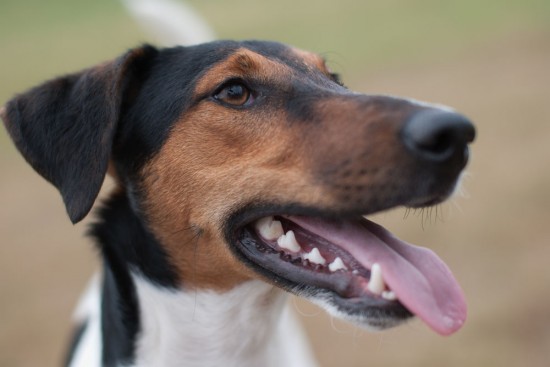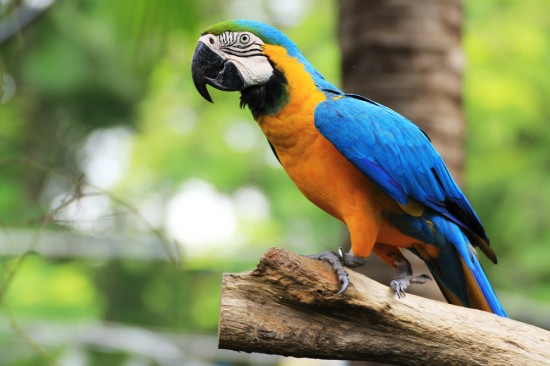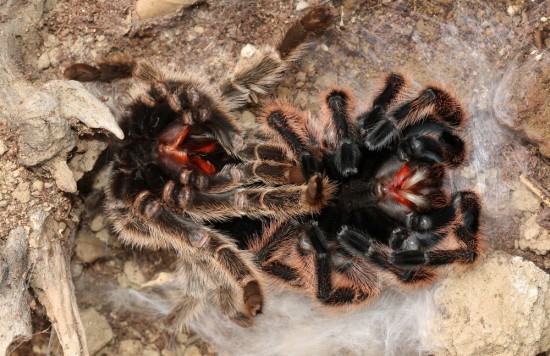

When people talk about domestic pets that are natural hunters and that have a strong hunting instinct, they are usually referring to Felis catus, or the domestic cat. However, dogs too are natural hunters, and for many centuries during the wolf evolutionary phase of the dogs we know today, hunted and scavenged as their sole means of subsistence.
As the modern dogs we share our lives with today began to evolve from their lupine ancestors, dogs and primitive humans has a symbiotic and mutually beneficial relationship. Humans would provide food and warmth for their wolf-dogs, and their semi-wild pets would provide protection and assistance with hunting.
Because of the fact that dogs were historically valued for their hunting abilities, if anything, the hunting skill and predisposition of certain types of dogs to hunt increased, if anything, since they began their interaction with humans. It is only within the last century or so that dogs have begun to be regarded in the main part as domestic, non-working pets; and that their previously desirable hunting prowess and propensity to chase has become a problem.
All dogs do have, to some extent, the hunting instinct, which will usually manifest as an urge to chase a smaller animal that flees, although this is often successfully trained out of domestic dogs from a very young age. Some dogs are much more committed to their hunting endeavours than others, and some dogs will pursue their perceived prey until they actually catch it or the smaller animal manages to escape, and will commit to the kill at the end of the hunt.
Training the hunting instinct out of a dog as early is possible will give you the best chances of keeping the urge to hunt under control. However, some dogs have a much stronger genetic urge to hunt than others, which can make training more challenging and often, only partially successful. Every dog’s behaviour should be taken on a case-by-case basis, and dogs of any breed may potentially show a strong hunting instinct without apparent precedent for it.
However. several breeds and types of dogs that were specifically valued as hunters will be significantly more likely to be committed to hunting and willing to follow through with a kill. This includes all varieties of sight hounds (including greyhounds, whippets and lurchers) and all dogs of the terrier breed grouping, large and small. Crossbreeds and part breeds of dogs of these ancestries will be similarly affected!
If your dog has a strong propensity to hunt, it is your responsibility to ensure that you do everything that you can to both train and manage their behaviour, and to protect other animals from danger.
It is important to remember that as a dog owner, you are responsible for your dog’s behaviour and liable in law for any harm or damage they might cause to another person’s property or possessions. This includes animals, and if your dog hunts, attacks or harms someone’s cat, rabbit or other pet, you can be prosecuted for this as well as of course being morally responsible for damage and suffering caused by your inability to supervise your dog.
Furthermore, if your dog attacks any livestock (this means any animal that is kept commercially, including poultry and game) then not only do you run the risk of prosecution but the owner of the animals in question is legally permitted to shoot your dog on sight.
If you are considering getting a dog of a breed that is known to be a keen hunter, think carefully about how you would be able to manage them and protect both you and your dog and other animals from harm.
 Teaching Your Pet Bird To Talk
Teaching Your Pet
Teaching Your Pet Bird To Talk
Teaching Your Pet
 How To Get Rid Of Fleas On Kittens
If you are seeing fleas on your kitten, its very importa
How To Get Rid Of Fleas On Kittens
If you are seeing fleas on your kitten, its very importa
 8 Exotic Pets For Families With Limited Space In The Home
8 Exotic Pets For
8 Exotic Pets For Families With Limited Space In The Home
8 Exotic Pets For
 Tarantulas And Moulting
Tarantulas And Mo
Tarantulas And Moulting
Tarantulas And Mo
 Canine Hydrotherapy At Home
Canine Hydrothera
Canine Hydrotherapy At Home
Canine Hydrothera
Copyright © 2005-2016 Pet Information All Rights Reserved
Contact us: www162date@outlook.com